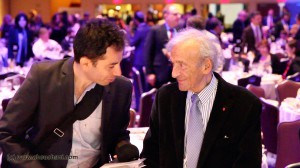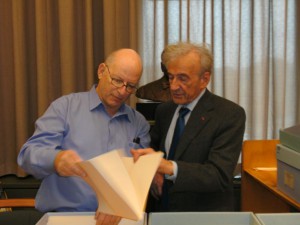http://frblogs.timesofisrael.com/le-mysterieux-maitre-delie-wiesel/
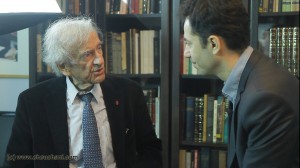
Tag Archives: Chouchani
The last filmed interview of Elie Wiesel was about his Mentor Shoshani – Chouchani
We’ve just learned the sad news: Elie Wiesel, Auschwitz Survivor and Nobel Peace Prize Winner, Dies at 87. Baruch Dayan Emet (Blessed is the True Judge).
We had the privilege to meet him and to interview him last year in New York.
Elie Wiesel was happy to talk about his mentor and master Shoshani (Chouchani).
We believe this was his last filmed interview.
Prof Shalom Rosenberg quotes his Mentor Shoshani in a new article in Hebrew
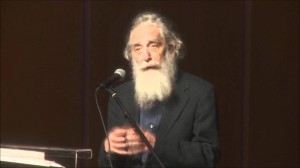 “שמע ישראל ה’ א-להינו ה’ אחד”. פסוק זה הוא סמלם של אמונת ישראל ושל קידוש השם. לדברי רש”י, הפסוק מלמד אותנו ש”ה’ שהוא אלוהינו עתה אך איננו אלוהי העכו”ם, הוא עתיד להיות ה’ אחד” – בלב כל האנושות. והוא מוסיף “ונאמר: ‘בַּיּוֹם הַהוּא יִהְיֶה ה’ אֶחָד וּשְׁמוֹ אֶחָד’”.
“שמע ישראל ה’ א-להינו ה’ אחד”. פסוק זה הוא סמלם של אמונת ישראל ושל קידוש השם. לדברי רש”י, הפסוק מלמד אותנו ש”ה’ שהוא אלוהינו עתה אך איננו אלוהי העכו”ם, הוא עתיד להיות ה’ אחד” – בלב כל האנושות. והוא מוסיף “ונאמר: ‘בַּיּוֹם הַהוּא יִהְיֶה ה’ אֶחָד וּשְׁמוֹ אֶחָד’”.
מורי ורבי פרופ’ שושני לימדנו שנבואה זו מבטאת את האמונה בניצחון העתידי של המונותיאיזם. האם הנבואה התקיימה? לכאורה לא! כל דת קוראת לא-ל שלה בשם אחר, דבר המהווה עילה מספקת למלחמות דת. רק כשתתגשם גם הנבואה “וּשְׁמוֹ אֶחָד” תגיע ההכרה שהא-ל האחד הוא גם אותו א-ל של החלוק עליי.
- פרופ’ שלום רוזנברג, תלמידו של מר שושני, במאמרו לעיתון מקור ראשון
“Ecoute Israel Hashem notre Dieu est Un”. Ce verset est le symbole de la foi d’Israel et de la sanctification du Nom. Selon Rachi, ce verset nous enseigne qu’ “Hashem est notre Dieu maintenant, mais n’est pas le Dieu des idolâtres, Il deviendra à l’avenir le Dieu UN”, au coeur de l’humanité entière. Et il ajoute “En ce jour-là, l’Eternel sera le seul Eternel, Et son nom sera le seul nom.” (Zacharie 14 9)
Mon Maitre le professeur Chouchani nous enseignait que cette prophétie enseigne la foi en la future victoire du monothéisme. Est-ce que cette prophétie s’est réalisée ? A priori non ! Chaque religion nomme son Dieu par un autre nom, ce qui est parfois une raison suffisante pour une guerre de religion. Uniquement lorsque cette prophétie “son nom sera le seul nom” sera aussi réalisée, alors viendra la conscience que le Dieu Un est aussi le Dieu de ceux qui ne sont pas d’accord avec nous.
- Extrait d’un article du Professeur Shalom Rosenberg, élève de Monsieur Chouchani, dans le journal Makor Rishon du 1/04/2016.
Elie Wiesel holds Shoshani / Chouchani’s letters in his private archives
Another fascinating article written by a talented journalist Ofer Aderet in Haaretz (same journalist who wrote the first article about our movie on Chouchani / Shoshani http://www.haaretz.com/israel-news/.premium-1.553215)
This time it’s about the most famous book of Elie Wiesel, “Night”. We learn here that Dr Joel Rapel – who was the director of Elie Wiesel’s archives in Boston for years – found there this manuscript in Hebrew! Nobody knew until now that Wiesel wrote a version of “Night” in Hebrew because it has never been published. The text in Hebrew is different than the one in French.
Another interesting point in the article, though we knew it before from another source: Elie Wiesel holds letters that Chouchanu/Shoshani wrote him! Under what name did Chouchani sign his letters? good question… It’s important to stress the fact that Elie Wiesel has always maintained that Chouchani’s real name was Mordehai Rosenbaum.
Note: this mention of these letters doesn’t appear in the Hebrew translation of the original article of Aderet in Hebrew, one can say that Chouchani was lost in translation ![]()
Jean-Paul Sartre and Benny Levy read Levinas and hear Chouchani’s voice
Benny Levy fut le secrétaire de Jean-Paul Sartre. Militant maoïste de premier plan sous le pseudonyme de Pierre Victor, il dirige dans la France de l’immédiat « après-Mai » (début des années 1970) le parti Gauche prolétarienne. Il découvre ensuite Emmanuel Levinas et le Judaisme qu’il fait aussi decouvrir à Jean-Paul Sartre. 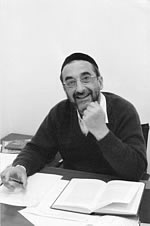
Il entame alors un retour vers le Judaisme par l’étude des textes juifs, il explique cela dans cet entretien radio sur France Culture avec Alain Finkielkraut.
Benny Levy ne prononce pas ici une seule fois le nom Chouchani, mais l’oreille attentive l’entend pourtant dans chacune de ses phrases.
http://www.franceculture.fr/philosophie/benny-levy-chez-levinas-l-hebreu-n-etait-pas-une-religion-fossile-c-etait-une-pensee
“Levinas est celui qui a provoqué mon retour aux textes juifs, et à la vie juive. [...] Quand j’ai lu Levinas, au moment où je m’entretenais avec Sartre, j’ai eu le sentiment qu’il parlait d’ailleurs. Sentiment qui devient de plus en plus obsédant et puis qui s’explicite : il y a un horizon, un horizon propre qui est l’horizon de l’hébreu. C’est d’ailleurs ce qu’a compris Sartre, ce qu’a découvert Sartre avec moi, que l’hébreu ce n’était pas une religion fossile, c’était une pensée. Donc il y a une pensée qui se déploie autrement, qui relève d’un autre horizon.[...]”
“Levinas c’était – à travers toute l’intrigue d’autrui – retourner à la trace de Dieu. Levinas est celui qui a fait qu’il y ait retour du nom de Dieu dans la langue philosophique et tout particulièrement dans la langue française, c’est-à-dire cette langue qui était exceptionnellement rebelle à ce retour, car c’est une langue acéphale, je désigne cette notion importante pour Bataille “couper la tête du roi c’était couper la tête de Dieu”. Donc il y avait quelque-chose de militant dans l’athéisme. [...] Donc c’était un acte incroyable d’audace pour un garçon aussi respectueux qu’était Levinas, un acte incroyable d’audace de permettre que retourne le pharisien dans les lettres françaises.”
“Ce texte là nous brulait”.
Pearls of Chouchani – Pearl number 1
Pearls of Chouchani – Pearl number 1
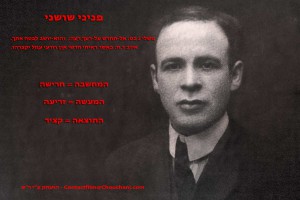
Read Proverbs 3,29 “Do not plow (plot) harm against your neighbor, who lives trustfully near you”
and Job 4,8 “As I have observed, those who plow evil and those who sow trouble reap it.”
The Thought = Plowing
Action = Sowing
The Result = Harvest
—————————————————–
Perles de Chouchani – perle numéro 1
Lire Proverbes 3,29 “Ne laboure (médite) pas le mal contre ton prochain, Lorsqu’il demeure tranquillement près de toi.”
et Job 4,8 “Selon ce que j’ai vu, ceux qui labourent l’iniquité et qui sèment la misère, la moissonnent”
La pensée = labourer
L’action = semer
Le résultat = la récolte
Remember, Yzkor – 26 Tevet 5728 מר שושני הלך לעולמו ב, M. Chouchani passed away on January 26th 1968
Yzkor – 26 Tevet 5728, 26 janvier January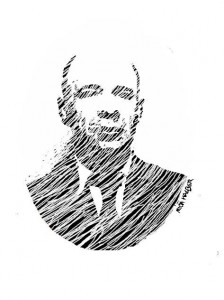 1968
1968
We were sent this email:
Mister Shoshani passed away a Friday night 26 Tevet 5728, January 26th 1968. Tonight is Yom Zikaron, JahrZeit, of this man that we will never forget, he left without any offspring other but his disciples. 5728 is written in Hebrew תשכ”ח but we will say לא נשכח as long as we live, we will not forget.
Signed an anonymous student. ”
On nous a envoyé cet email :
“Monsieur Chouchani est mort le vendredi soir 26 Tevet 5728, 26 janvier 1968. Ce soir, Yom Zikaron, JahrZeit, de celui que nous n’oublions pas, parti sans autre descendance que ses disciples. 5728 s’écrit en hébreu תשכ”ח mais nous dirons לא נשכח aussi longtemps que nous vivrons, nous n’oublierons pas.
Signé : un élève anonyme.”
On Instruction and Knowledge
“Préférez mes instructions à l’argent, Et la science à l’or le plus précieux; Car la sagesse vaut mieux que les perles, Elle a plus de valeur que tous les objets de prix.” (Proverbes 8,10-11)
(קְחוּ מוּסָרִי וְאַל כָּסֶף וְדַעַת מֵחָרוּץ נִבְחָר. כִּי טוֹבָה חָכְמָה מִפְּנִינִים וְכָל חֲפָצִים לֹא יִשְׁווּ בָהּ” (משלי ח י-יא”
“Choose my instruction instead of silver,
knowledge rather than choice gold,
for wisdom is more precious than rubies,
and nothing you desire can compare with her.”
(Proverbs 8,10-11)
Shoshani and the Rabbi
מר שושני ביקש וקיבל טלית מהרבי מליובביץ. עוד מאמר על “הגאון המסתורי”.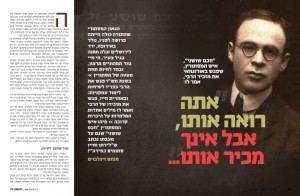
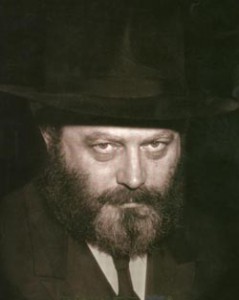
Monsieur Chouchani a demandé et a reçu un Talith du Rabbi de Loubavitch. Voici un nouvel article sur “génie mystérieux”.
Mister Shoshani requested and received a Talith from the Lubavitch Rabbi. Here is a new article on the “the Mysterious Genius”.
article in English :
http://beismoshiachmagazine.org/articles/the-mysterious-chacham-shushani.html
מר שושני והרבי
מר שושני ביקש וקיבל טלית מהרבי מליובביץ. עוד מאמר על “הגאון המסתורי”.
Monsieur Chouchani a demandé et a reçu un Talith du Rabbi de Loubavitch. Voici un nouvel article sur le “génie mystérieux”.
Mister Shoshani requested and received a Talith from the Lubavitch Rabbi. Here is a new article on the “the Mysterious Genius”.
http://beismoshiachmagazine.org/katavot/2015/12/3/254747701448-2.html
